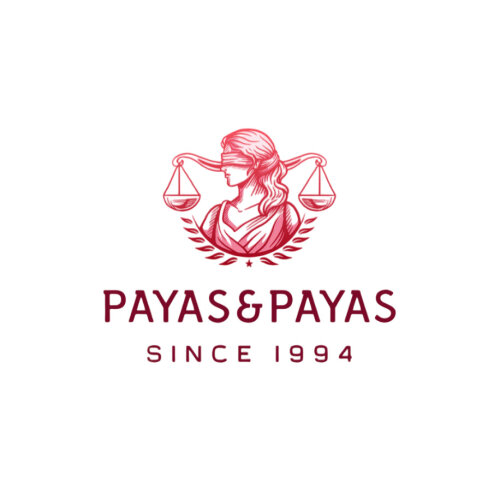Best International Trade Law Lawyers in Turkey
Share your needs with us, get contacted by law firms.
Free. Takes 2 min.
Or refine your search by selecting a city:
List of the best lawyers in Turkey
About International Trade Law in Turkey
International Trade Law in Turkey is a dynamic and intricate field that encompasses regulations governing the exchange of goods and services across international borders. The country plays a strategic role owing to its geographical position bridging Europe and Asia, making it a significant player in global trade. Turkey adheres to international agreements such as the World Trade Organization (WTO) protocols and regional agreements, and its trade policies aim to foster economic growth while adhering to global standards. Turkish trade laws incorporate a blend of local regulations and international conventions to facilitate and govern trade operations efficiently.
Why You May Need a Lawyer
Engaging in international trade can be complex due to varying legal systems, languages, and cultural differences. Here are some situations where legal assistance may be crucial:
- Contract Negotiation: Legal expertise is essential for drafting and negotiating contracts that cover different jurisdictions.
- Dispute Resolution: A lawyer can provide guidance through arbitration or litigation processes when disputes arise.
- Compliance Issues: Ensuring compliance with both Turkish legal requirements and international trade standards requires professional legal assistance.
- Tariff and Taxation Concerns: Navigating tax liabilities and customs duties in Turkey demands specialized legal knowledge.
- Intellectual Property Rights: Protecting and enforcing IP rights in relation to international trade deals.
Local Laws Overview
Turkey's local laws that impact international trade include the Customs Code, Import and Export Regimes, and taxation regulations such as the Value Added Tax (VAT) and Special Consumption Tax (SCT). Important aspects include:
- Import and Export Regulations: These involve permits, licenses, and specific compliance required for various goods.
- Customs Procedures: The Turkish Customs Code outlines rules for the clearance of goods, post-clearance audits, and offender penalties.
- Trade Agreements: Turkey is part of a Customs Union with the EU and has free trade agreements with numerous countries.
- Investment Laws: These laws regulate foreign investment in Turkey, ensuring fair treatment and minimizing barriers.
Frequently Asked Questions
What is the role of the Turkish Ministry of Trade in international trade?
The Turkish Ministry of Trade oversees trade operations, enforces trade laws, and provides support and guidance to businesses engaged in import and export activities.
Do I need special permits to trade with Turkey?
Depending on the type of goods and sector, specific permits and licenses may be required, which are regulated by the relevant Turkish governmental authorities.
How does Turkey handle trade disputes?
Trade disputes in Turkey can be resolved through various means, including negotiation, mediation, arbitration, or court litigation, depending on the agreement between parties.
What taxes apply to imported goods in Turkey?
Imported goods are subject to Value Added Tax (VAT) and sometimes Special Consumption Tax (SCT), with rates varying depending on the type and classification of the goods.
How can businesses ensure compliance with Turkish trade laws?
Businesses should consult with legal professionals specializing in Turkish international trade law to ensure full compliance, addressing regulatory, customs, and documentation requirements properly.
What types of goods are restricted or prohibited from importation into Turkey?
Certain products, such as hazardous materials, arms, and specific agricultural products, are subject to restrictions or prohibitions. It is crucial to check detailed regulations concerning the goods in question.
Is Turkey part of any trade agreements that affect international trade?
Yes, Turkey has trade agreements with various countries, including a Customs Union with the European Union, which affects tariffs and trade regulations.
What are the major risks involved in international trade with Turkey?
Common risks include currency fluctuation, compliance with local standards, political risks, and contractual risks, which could impact business operations.
Can foreign investors own a business in Turkey?
Yes, Turkey allows foreign investors to own businesses, with laws in place to protect investments and ensure fair treatment.
How do I protect intellectual property in Turkey?
Intellectual property can be protected by registering patents, trademarks, and copyrights with the Turkish Patent and Trademark Office, and legal enforcement may be sought against infringements.
Additional Resources
For additional support and information, consider reaching out to:
- Turkish Ministry of Trade: Offers comprehensive guidelines and support on trade-related matters.
- Union of Chambers and Commodity Exchanges of Turkey (TOBB): Provides practical support and updates on trade regulations.
- International Chamber of Commerce Turkey: Offers resources and advocacy for businesses engaged in international trade.
- Turkish Exporters Assembly (TIM): Represents exporters and offers valuable data and market trends.
Next Steps
If you require legal assistance in the field of international trade law, consider the following steps:
- Research: Conduct thorough research on law firms specializing in international trade law in Turkey.
- Consultation: Schedule consultations with potential lawyers to discuss your specific needs and understand their expertise.
- Engagement: Hire a lawyer who has proven experience in handling international trade cases relevant to your industry.
- Stay Updated: Regularly follow updates and changes in trade laws that could impact your business operations.
By taking these steps, you can better navigate the complexities of international trade and secure your interests effectively.
Lawzana helps you find the best lawyers and law firms in Turkey through a curated and pre-screened list of qualified legal professionals. Our platform offers rankings and detailed profiles of attorneys and law firms, allowing you to compare based on practice areas, including International Trade Law, experience, and client feedback.
Each profile includes a description of the firm's areas of practice, client reviews, team members and partners, year of establishment, spoken languages, office locations, contact information, social media presence, and any published articles or resources. Most firms on our platform speak English and are experienced in both local and international legal matters.
Get a quote from top-rated law firms in Turkey — quickly, securely, and without unnecessary hassle.
Disclaimer:
The information provided on this page is for general informational purposes only and does not constitute legal advice. While we strive to ensure the accuracy and relevance of the content, legal information may change over time, and interpretations of the law can vary. You should always consult with a qualified legal professional for advice specific to your situation.
We disclaim all liability for actions taken or not taken based on the content of this page. If you believe any information is incorrect or outdated, please contact us, and we will review and update it where appropriate.
Browse international trade law law firms by city in Turkey
Refine your search by selecting a city.

















